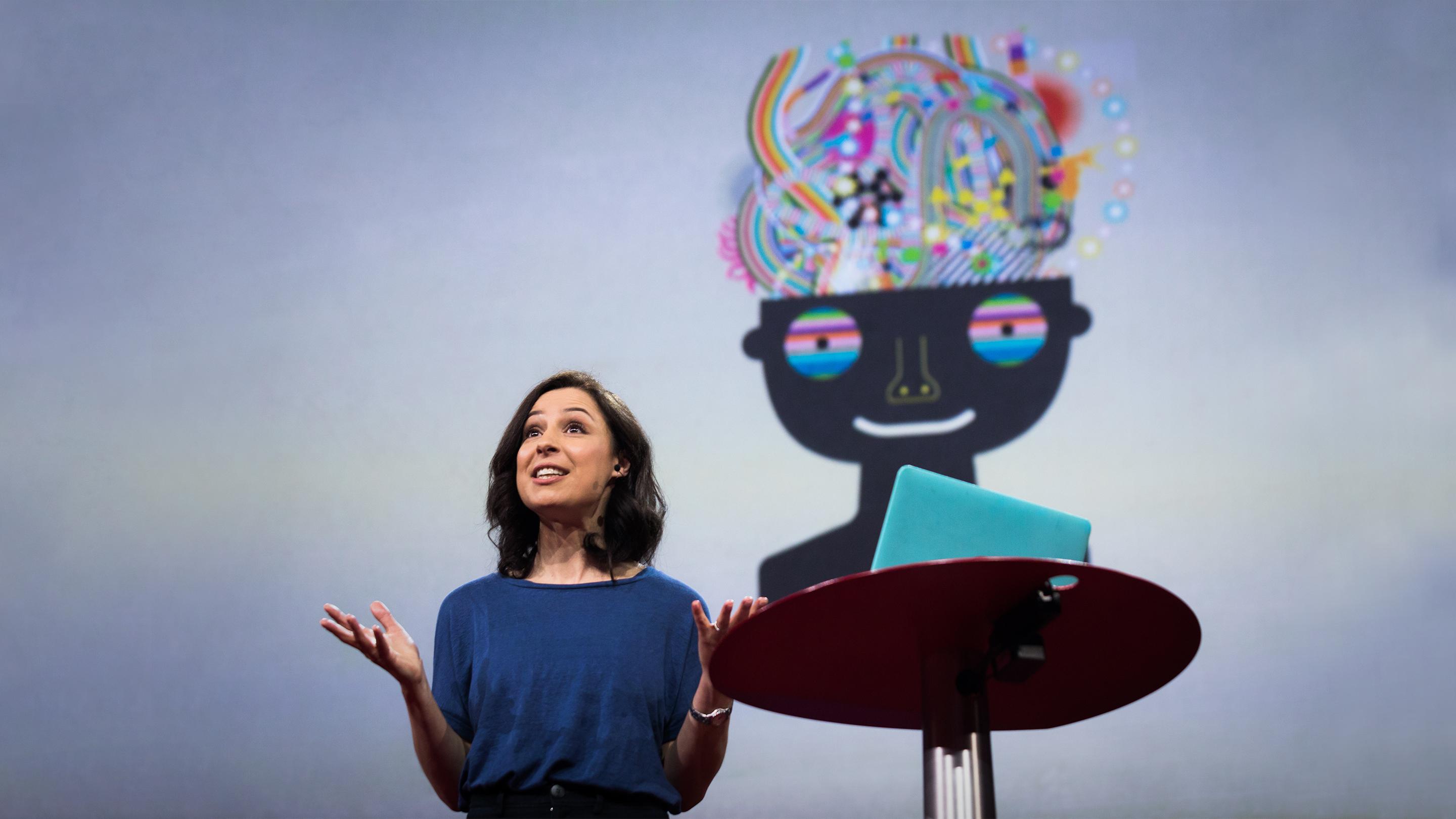Speaker: Manoush Zomorodi
Key words:创意 无聊 大脑
Abstract:人们在走神发呆时,大脑会进入一种类似自动驾驶的"默认模式网络(Default mode network)"的状态,而在这种状态下,人们可以更好地建立神经系统连接来构思和解决问题。TED演讲者Manoush Zomorodi建议重新思考我们与手机的关系,保留适当的无聊能有助于激发创意。
@TED: Do you sometimes have your most creative ideas while folding laundry, washing dishes or doing nothing in particular? It's because when your body goes on autopilot, your brain gets busy forming new neural connections that connect ideas and solve problems. Learn to love being bored as Manoush Zomorodi explains the connection between spacing out and creativity.
Content:
Questions:
- What actually happens to us when we get bored?
- What happens to us if we never get bored?
- What could happen if we got rid of this human emotion entirely?
Answer from Neuroscientists and cognitive psychologists Dr. Sandi Mann:
Once you start daydreaming and allow your mind to really wander, you start thinking a little bit beyond the conscious, a little bit into the subconscious, which allows sort of different connections to take place.
It turns out that when you get bored, you ignite a network in your brain called the "default mode." when we connect disparate ideas, we solve some of our most nagging problems, and we do something called "autobiographical planning."
Why multitasking is not possible by Dr. Daniel Levitin:
Every time you shift your attention from one thing to another, the brain has to engage a neurochemical switch that uses up nutrients in the brain to accomplish that. So if you're attempting to multitask, you know, doing four or five things at once, you're not actually doing four or five things at once, because the brain doesn't work that way. Instead, you're rapidly shifting from one thing to the next, depleting neural resources as you go.
professor of informatics, Dr. Gloria Mark found now we are kinda controlled by our phones: A decade ago, we shifted our attention at work every three minutes. Now we do it every 45 seconds, and we do it all day long. The average person checks email 74 times a day, and switches tasks on their computer 566 times a day.
So we find that when people are stressed, they tend to shift their attention more rapidly. We also found, strangely enough, that the shorter the amount of sleep that a person gets, the more likely they are to check Facebook. So we're in this vicious, habitual cycle.
Bored and Brilliant project is
Speaker's suggestion:
So the next time you go to check your phone, remember that if you don't decide how you're going to use the technology, the platforms will decide for you. And ask yourself: What am I really looking for? Because if it's to check email, that's fine -- do it and be done. But if it's to distract yourself from doing the hard work that comes with deeper thinking, take a break, stare out the window and know that by doing nothing you are actually being your most productive and creative self. It might feel weird and uncomfortable at first, but boredom truly can lead to brilliance.
Comment:
Rethink your relationship with your phone.
Try spare yourself some leisure time on mind-wandering or meditating, to empty your brain for a moment, maybe in this way your brilliant ideas will come in.
Related:
Wikipedia of Default Mode Network
默认网络在有外在注意任务的时候负激活, 在进行与自我, 道德判断, 情景记忆, 未来设想等与内部心理有关的任务时正激活
Link:TED

快来加入#1000个TED学习计划#,在“一千个TED视频的探索之旅”中分享你最好最实用的TED学习笔记
